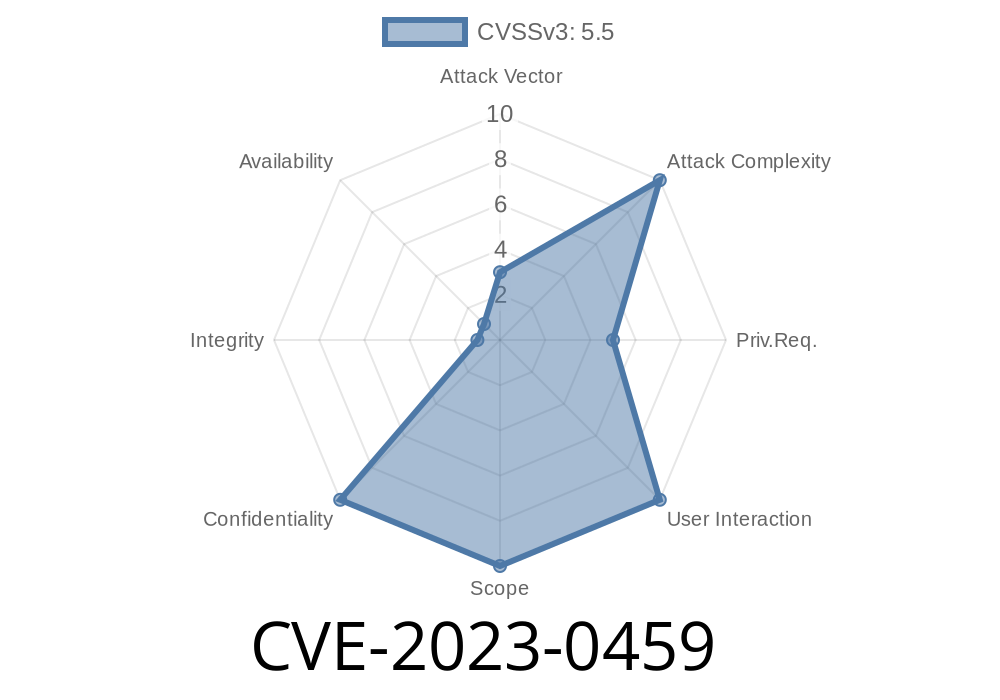In early 2023, security researchers uncovered a flaw in the Linux kernel’s memory handling, tracked as CVE-2023-0459. This vulnerability centers around the copy_from_user function on 64-bit versions of the Linux kernel. If left unpatched, it allows attackers to bypass important security checks and potentially access or leak sensitive kernel data.
This article will break down how the vulnerability works, provide a sample exploit scenario, and guide you towards keeping your systems safe.
What’s Going On? Understanding copy_from_user
copy_from_user() is a kernel function meant for safe data transfer from user space into kernel space. It’s crucial that the kernel checks the address the user provides—a mistake here can spell disaster.
Normally, before any copying happens, there’s a check named access_ok. This verifies whether the pointer is safe. But with CVE-2023-0459, something went wrong:
> On 64-bit kernels, copy_from_user failed to implement __uaccess_begin_nospec. This made it possible for malicious userspace programs to *bypass* the access_ok check and trick the kernel into copying data from a kernel-space pointer.
Why Does This Matter?
If an attacker can pass a kernel pointer instead of a user pointer and still perform a copy operation, they might:
Trigger undefined behavior, possibly leading to further exploits or privilege escalations.
This bug is especially useful for local attackers trying to break kernel isolation.
Normally, code interacting with userspace memory would look like
if (access_ok(user_ptr, size)) {
copy_from_user(kernel_dest, user_ptr, size);
}
What Went Wrong?
On affected Linux 64-bit systems, copy_from_user() did not correctly use __uaccess_begin_nospec. This special barrier is required to prevent speculative execution attacks—or attackers bypassing access checks during certain optimizations.
Minimal Exploit Pseudocode
Security researchers have shown how an unprivileged program might trigger this flaw (note: simplified for explanation):
#include <stdio.h>
#include <fcntl.h>
#include <sys/ioctl.h>
#include <unistd.h>
// Kernel pointer known/guessed, for example /proc/kallsyms leak
unsigned long kernel_addr = xffff888000000000ULL;
char leak_buffer[128];
// Imagine ioctl_target is a buggy kernel driver using copy_from_user
int fd = open("/dev/ioctl_target", O_RDWR);
// Send ioctl with malicious kernel pointer
ioctl(fd, IOCTL_VULN_CMD, kernel_addr);
printf("Leaked: %s\n", leak_buffer);
Dangerous Outcome: The call returns kernel memory back to an unprivileged program!
Mitigation & Fixed Versions
The fix landed in kernel commit
74e19efff8061ef55957c3abd71614eff42f47.
With this change, copy_from_user correctly enforces all uaccess/no-speculation boundaries, blocking this trick.
Recommendation:
Upgrade your kernel to a version including this commit if running on any 64-bit Linux kernel platform. Most major distributions backported the change to supported versions—look for security advisories referencing CVE-2023-0459.
See if you’re vulnerable (kernel version < 6.2, for many distros)
uname -r
Check your distribution’s security advisories, for example
- Red Hat Security Advisory
- Debian Security Tracker
- Ubuntu CVE Details
References & Further Reading
- Original Patch - git.kernel.org
- Red Hat - CVE-2023-0459
- Linux Kernel Security Mailing List
Keep up with your distro’s security channels for critical updates.
Simple rule:
If your Linux kernel security patches mention CVE-2023-0459, don’t skip them—your system could be a leak waiting to happen.
Timeline
Published on: 05/25/2023 14:15:00 UTC
Last modified on: 06/01/2023 16:45:00 UTC
